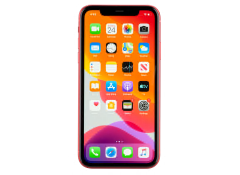Samsung has issued a highly unusual double recall of the Galaxy Note7 phone and its replacement after persistant reports of battery fires. Both Consumer Reports and the Consumer Product Safety Commission (CPSC) have urged Note7 owners to power down these phones and bring them back for either a refund or an alternate phone.
But it's unlikely that Samsung's recall and return program will get all Note7s out of customers' hands. And those remaining phones could cause a public safety risk—not just to the owners, but to those around them. The potential danger was brought into stark relief when reports surfaced that a replacement Note7 caught fire on a Southwest Airlines flight before takeoff on Oct. 5.
"Historically, manufacturers have had a difficult time with recalls," says Dirk C. Gibson, associate professor at the University of New Mexico, who has analyzed product recalls since the mid-1990s. "Recall return rates, even for the most dangerous products, never approach 100 percent. In fact, they rarely reach 50 percent."
And there's little reason to think that will change this time around. According to reports, only a relatively small number of models have actually overheated or burst into flames. And the current incentive offered by Samsung and its cell partners—a different Samsung phone and $100 credit, or $25 credit for those customers who choose a phone from a different manufacturer—may not be enough for people who have not only grown to like their phones, but have also spent time and effort to fill those phones with apps, photos, and contact info for their friends.
That leaves Samsung, cell phone service providers, and officials at the CPSC with a difficult challenge. If the public isn't sufficiently motivated to turn in the phones, how do you compel people to do that? Could the company or the cell service providers go so far as to render those phones inoperable, and "brick" them with some sort of automatic software update?
We posed that question to Samsung and the four major carriers. Samsung, AT&T, and T-Mobile declined to comment, while Sprint and Verizon have not yet responded. We also reached out to legal and regulatory experts to see whether it was legally possible, or even advisable, to disable these phones remotely.
Attorney David Wix, a partner at Tarpey Wix LLC, who has represented clients such as phone maker Kyocera in dealings with the Consumer Product Safety Commission, was intrigued. "If they send out some kind of notice, perhaps through the phone, that service will be shut off in a certain amount of days, I think it's a good idea."
Pamela Gilbert, who once served as executive director of the CPSC and is now a partner at Cuneo Gilbert & LaDuca, LLP, begs to differ. "It's a terrible idea," she says, "because people really do need to use their phones. You don't want to turn off people to the recall system. They're already annoyed that there have been so many recalls, and it's a hassle, you can't keep track of all that stuff."
In fact, she adds, the CPSC does not even have the authority to insist that consumers return a recall product. "They have jurisdiction over manufacturers, distributors, importers, and retailers, but they do not have jurisdiction over you and me."
And Gilbert and Wix both acknowledge that turning off the phones of unsuspecting users poses its own risks. What if they're not able to make a call during an emergency, for example?
The legal issue for cell phone service providers is particularly tricky. Do they have the right to turn off that service on customers who have not violated the terms of their agreements?
Attorney Gilbert advises against it. "If you've done, as a consumer, everything you're supposed to do—you've paid your bill and haven't violated anything else in your agreement—and then they turn around and disable your phone," she says, "I don't think that's a good route to go."
But Wix believes those individual risks have to be weighed against the interest of the public, which in this case would be to get those phones out of circulation as soon as possible.
"While the CPSC has no jurisdiction over the public, it does have the responsibility of conveying to the public in a sufficient fashion that there's a real danger," he says. "If the company isn't working hard enough to ensure a decent rate in the number of returns, there's legal action [the CPSC] can take against the company."
Gilbert, on the other hand, insists that even in the case of a risky product, the approach should be to encourage consumers to act, not punish them.
"Consumers haven't done anything wrong here," she explains. "In fact, they're victims. They bought a product, and thought it was going to be great, and now they have to go through the hassle of getting a new [phone] and all that stuff, so they shouldn't be put out. It's not on them. It's on Samsung to do the right thing by everybody."

















